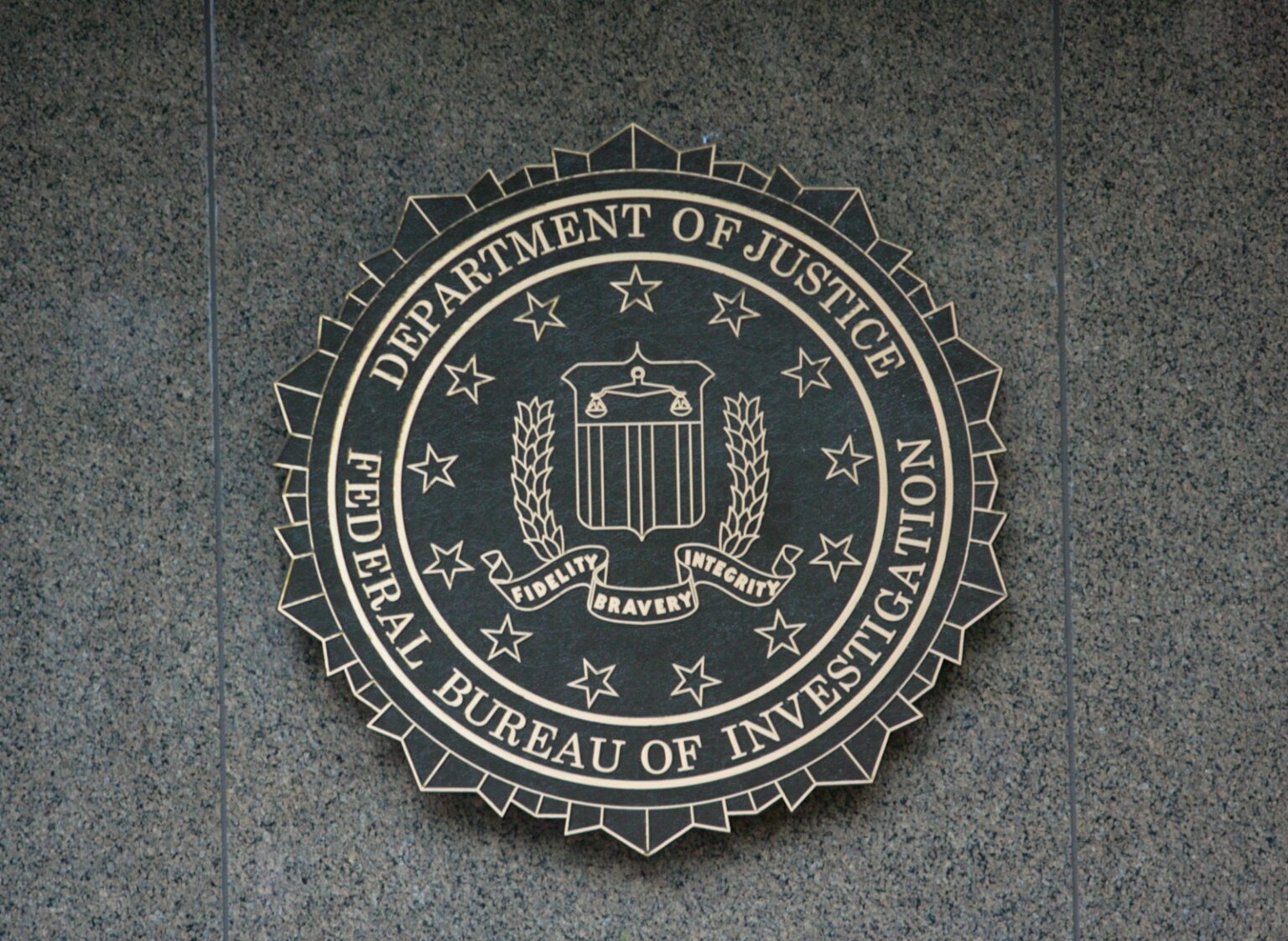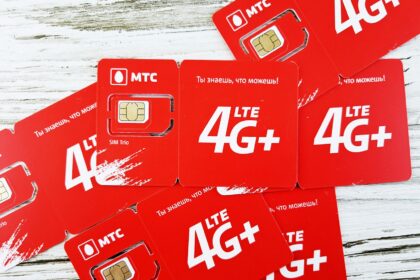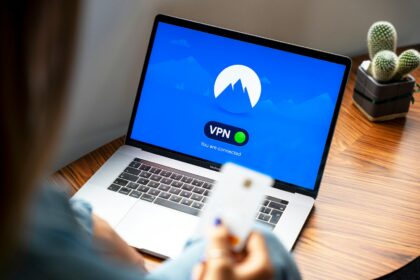Have you ever watched a movie where a team of experts races against time to stop a massive cyberattack? It seems like fiction, but it’s a daily reality for the Federal Bureau of Investigation. The digital world is the new frontline for crime and national security. Every day, shadowy groups and hostile nations try to steal our secrets, empty our bank accounts, and disrupt our lives. Standing in their way are the dedicated professionals in FBI Cybersecurity Jobs. These aren’t just nine-to-five desk jobs. They are high-stakes careers at the very center of protecting a nation.
You might picture a dark room filled with glowing code, and you’re not entirely wrong. But the field is much broader and more exciting than that. It’s a world of digital detectives, code-breakers, and strategists. It’s about piecing together clues from a hacked server to track a criminal across continents. It’s about preventing an attack on our power grid before it ever happens. This isn’t just about computers; it’s about people, motives, and justice.
Maybe you’re working in IT right now, feeling like you could do more. Maybe you’re a student with a passion for puzzles and technology. You might be exactly who the FBI is looking for. This article is your guide. We will break down seven key FBI cybersecurity jobs, what they do, and most importantly, how you can get one. We’ll explain it all in simple terms. No confusing jargon. Just a clear path to a career that matters.
The Big Mission: Why FBI Cybersecurity Is So Critical
Before we dive into the specific jobs, let’s get one thing straight. The FBI’s mission in cyberspace is unique. They are not just a tech support team. They are a law enforcement and intelligence agency. Their goal is to identify, pursue, and defeat cyber adversaries.
Think about it. A hacker group in another country steals the personal data of millions of Americans. Who investigates? The FBI. A terrorist organization tries to use social media to recruit members in the U.S. Who stops them? The FBI. A company’s secret new invention is stolen digitally by a foreign competitor. Who builds the case? The FBI. Their work has real-world consequences, putting criminals behind bars and neutralizing national security threats.
As one former Cyber Special Agent put it, “One day you’re tracing a ransomware payment through a maze of cryptocurrency wallets to a group in Eastern Europe. The next, you’re preparing a brief for prosecutors on how a specific piece of malware works. You see the direct impact of your work. You’re not just patching a server; you’re protecting your neighbors.”
This mission requires a unique blend of skills. It needs people who understand technology deeply but also people who understand law, human behavior, and intelligence gathering. It’s a team sport, and here are some of the key players.
1. The Cyber Special Agent: The Field Operative
This is the role most people think of when they picture the FBI. A Cyber Special Agent is a sworn federal law enforcement officer with a high-tech specialty. They carry a badge and a gun, but their most powerful weapon is often their laptop.
What they do:
Imagine a bank has been hit by a sophisticated hacking group. The Cyber Special Agent is the lead investigator on the ground. They don’t just sit in an office. They go to the “digital crime scene.” They interview victims, collect evidence (like hacked hard drives and servers), and work with other experts to analyze it. Their job is to answer the big questions: Who did this? How did they do it? And how can we stop them from doing it again?
A Special Agent might have to:
- Run complex investigations into everything from identity theft rings to acts of cyber terrorism.
- Go “undercover” on the dark web to infiltrate criminal forums.
- Work with foreign law enforcement agencies to track suspects who live overseas.
- Testify in court, explaining complex technical details to a judge and jury in a way they can understand.
- Execute search warrants and make arrests.
A Day in the Life (Fictional Anecdote):
Agent Miller begins her day with a secure video call. It’s with law enforcement in Germany, who’ve found a server linked to the ransomware attack she’s been investigating for months. Throughout the day, she works with the FBI’s digital forensics team to obtain a “forensic image” of the server’s data. She dedicates the afternoon to drafting an affidavit for a search warrant for a suspect’s home in the U.S. This role is high-pressure, where every detail is critical. She believes the data from the German server could be the key to dismantling a criminal network.
2. The Forensic Examiner: The Digital Detective
When a crime occurs, a crime scene investigator collects fingerprints and DNA. In cybercrime, a Forensic Examiner performs a similar role. They are experts in uncovering hidden or deleted information.
What they do:
These specialists dissect a device, like a computer or phone, used in a crime. They uncover digital “fingerprints” left by criminals. Their work demands meticulous attention to detail. The evidence they gather must be court-worthy, with every step documented.
A Forensic Examiner’s tasks include:
- Recovering deleted files, emails, and text messages that a suspect tried to destroy.
- Analyzing malware to understand its function and origin.
- Creating a timeline of a hacker’s activity on a compromised network.
- Cracking passwords and bypassing security measures on devices.
- Handling digital evidence with extreme care to maintain the “chain of custody.”
They are akin to digital archaeologists, carefully uncovering secrets buried in hard drives. Their mantra is: “Data never truly dies.” This is one of the most hands-on FBI Cybersecurity Jobs.
3. The Computer Scientist: The Tool Builder
While Forensic Examiners use existing tools, Computer Scientists often create new ones. When the FBI faces a new encryption or malware, they call on Computer Scientists.
What they do:
These elite coders and developers have a deep understanding of software and hardware. If a criminal creates a custom virus, a Computer Scientist will reverse-engineer it. They dissect it, line by line, to understand its purpose and find a way to defeat it.
A Computer Scientist might:
- Develop custom software to analyze massive amounts of data from an investigation.
- Create programs that can break complex encryption used by criminals.
- Analyze the architecture of a compromised network to find its weakest points.
- Testify as an expert witness on the most technical aspects of a case.
Think of them as the Q to James Bond. They provide agents with cutting-edge gadgets and techniques to stay ahead of adversaries.
4. The Intelligence Analyst (Cyber Focus): The Strategist
An investigator focuses on a single case. An Intelligence Analyst looks at the big picture, connecting dots between cases. They are strategic thinkers who understand the why and what’s next.
What they do:
An Intelligence Analyst turns all FBI information into actionable intelligence. They identify trends and patterns that others miss.
An Analyst might answer questions like:
- Is this single ransomware attack part of a larger campaign by a specific hacking group?
- Which country is sponsoring this espionage activity, and what are they after?
- What are the emerging threats we should be worried about six months from now?
A Day in the Life (Fictional Anecdote):
Analyst Chen begins his day by delving into classified reports on recent cyber attacks against energy firms. He spots a pattern in the malicious code across three incidents. This pattern aligns with intelligence on a foreign government-linked group he’s seen on a classified channel. Chen starts drafting a report, focusing on the group’s strategy, not just the hacks. His work will alert the FBI, the White House, and field agents to this new threat. He’s not just documenting past events; he’s shaping the nation’s future defense.
5. The Data Analyst (Cyber Focus): The Pattern Finder
A Data Analyst is akin to a master tactician, handling vast amounts of data with precision. In today’s world, a single probe can yield terabytes of data, an overwhelming task for any individual. This is where the Data Analyst’s expertise is invaluable.
What they do:
Utilizing advanced statistical methods and programming, they navigate through vast data sets to uncover critical information. They transform disorganized data into coherent, actionable insights.
A Data Analyst might:
- Write a script to process millions of log files from a hacked company to find the single entry that shows how the hacker got in.
- Analyze financial records and cryptocurrency transactions to find hidden links between suspects.
- Create visualizations and dashboards that help agents quickly understand complex data sets.
Imagine the task of identifying a single person in a sea of faces at a packed stadium. This is the daily challenge they face, armed with the right tools and skills.
6. The IT Specialist (Network/Security): The Castle Guard
The IT Specialist plays a critical role in safeguarding the FBI from cyber threats. Given the Bureau’s status as a prime target for hackers, these specialists are the digital defenders of the FBI’s networks.
What they do:
This role is a cornerstone of FBI Cybersecurity Jobs. IT Specialists are responsible for designing, maintaining, and securing the FBI’s computer systems. They are vigilant 24/7, monitoring for any signs of intrusion and protecting sensitive data.
Their tasks include:
- Designing and implementing secure network architectures.
- Managing firewalls, intrusion detection systems, and other security tools.
- Responding immediately to any security alerts or incidents on the FBI network.
- Ensuring that all systems are patched and up-to-date to protect against the latest vulnerabilities.
They act as the first line of defense, ensuring that the FBI’s hunters are not themselves hunted.
7. The Electronics Technician: The Hardware Expert
Not all cybersecurity focuses on software; sometimes, it’s about the physical devices themselves. The Electronics Technician (ET) is the expert in the physical realm, understanding how data flows at the hardware level.
What they do:
An ET’s role is diverse. They might install secure communication systems in FBI offices or set up surveillance equipment for operations. They also dismantle custom-built spy hardware and recover data from damaged devices.
An Electronics Technician might:
- Install and maintain the land mobile radio systems that agents use.
- Work on physical security systems like alarms and access control for FBI facilities.
- Support tactical operations with specialized electronic surveillance equipment.
- Disassemble and analyze electronic devices to understand their function.
They bridge the gap between the digital and physical worlds, playing a vital role in investigations and security.

How to Get One: Your Path to an FBI Cybersecurity Job
These roles are enticing, but how do you land one? It’s a challenging journey, yet achievable. The FBI seeks talented individuals from diverse backgrounds. Here’s a straightforward guide to help you.
Step 1: Meet the Basic Requirements
To become an FBI employee, you must first meet the essential requirements. These are non-negotiable.
| Requirement | Details |
|---|---|
| Citizenship | You must be a U.S. citizen. |
| Age (for Special Agents) | You must be at least 23 years old and apply before your 36th birthday (some exceptions for military veterans). |
| Background | You must be able to pass a rigorous background investigation. This means having a clean record, being honest about your past (including any drug use), and having good credit. |
| Education | You must have at least a Bachelor’s degree from an accredited U.S. college or university. |
| Work Experience | For the Special Agent role, you typically need at least two years of full-time professional work experience. |
The background check is serious. They will interview your friends, family, past employers, and neighbors. They will conduct a polygraph exam. The key is absolute honesty. The FBI values integrity above all else.
Step 2: Get the Right Education and Experience
While the FBI accepts degrees in any field, certain paths give you a huge advantage for their cybersecurity roles.
Top Degrees:
- Computer Science
- Cybersecurity / Information Security
- Information Technology
- Digital Forensics
- Electrical Engineering
Yet, the Bureau also values diversity. A degree in Finance or Accounting could make you a great candidate for investigating financial cybercrime. A degree in International Relations could be perfect for an Intelligence Analyst role. The key is to pair your degree with relevant technical skills.
Experience is King:
The FBI isn’t just looking for people who aced their exams. They want people who have done the work. This could be from:
- A private sector job in cybersecurity (like a penetration tester, security analyst, or network administrator).
- Military experience in a tech or intelligence role.
- Working for another government agency.
Step 3: Master the Right Skills
This is where the rubber meets the road. You need to have a mix of technical (hard) skills and professional (soft) skills. The competition for FBI Cybersecurity Jobs is intense, and skills are what set you apart.
Crucial Technical Skills
| Skill Area | Examples |
|---|---|
| Networking | Deep understanding of TCP/IP, DNS, routing, firewalls, and network traffic analysis. |
| Operating Systems | Expert knowledge of Windows, Linux, and MacOS, including their file systems and security features. |
| Scripting/Programming | Proficiency in languages like Python, PowerShell, or Bash for automating tasks and analyzing data. |
| Security Concepts | Knowledge of malware analysis, vulnerability assessment, penetration testing, and intrusion detection. |
| Digital Forensics | Familiarity with forensic tools (like EnCase or FTK) and techniques for data recovery and analysis. |
| Cloud Security | Understanding of security in cloud environments like AWS, Azure, or Google Cloud. |
Just as Important: Soft Skills
Being a tech genius isn’t enough. You have to work on a team and communicate effectively. The FBI looks for:
- Problem-Solving: Can you think on your feet when faced with a complex, unfamiliar problem?
- Communication: Can you explain a technical concept clearly to a non-technical person, like a lawyer or a manager? This is vital.
- Teamwork: Can you collaborate effectively with people from different backgrounds and with different skills?
- Integrity: Are you honest, responsible, and trustworthy? This is the most important quality of all.
- Adaptability: The world of cyber changes every day. You have to be a lifelong learner.
Step 4: Navigate the Hiring Process
The FBI hiring process is long and demanding. It can take a year or more. Patience is key.
- The Online Application: You’ll apply on the official FBI Jobs website. Your resume needs to be detailed and clearly show how your skills and experience match the job description. Use keywords from the job announcement.
- Phase I Testing: This is a computerized test that assesses your cognitive abilities, behavioral traits, and problem-solving skills.
- Meet and Greet: An information session where you learn more about the role and the process.
- Phase II Testing: This involves a writing test and a structured interview with a panel of Special Agents or FBI employees. They will ask you behavioral questions like, “Tell me about a time you had to solve a difficult problem.”
- Conditional Job Offer (CJO): If you pass Phase II, you’ll receive a CJO. This means you have the job, if you can pass the next steps.
- The Background Investigation and Polygraph: The deep dive into your entire life history we mentioned earlier.
- Physical Fitness Test (PFT): For Special Agent candidates, you must pass a fitness test that includes sit-ups, a 300-meter sprint, push-ups, and a 1.5-mile run.
- Final Job Offer & Quantico: If you clear everything, you get the final offer! Special Agents then go to the famous FBI Academy in Quantico, Virginia, for about 20 weeks of intense training. Other professional staff have their own onboarding process.
A Career Like No Other
Pursuing a career in the FBI is not easy. The standards are incredibly high. But the rewards are immense. This is more than a job. It’s a chance to be part of something bigger than yourself. It’s an opportunity to use your unique technical skills to protect your country and seek justice for victims.
Whether you see yourself as a field agent chasing digital shadows, a forensic expert uncovering hidden clues, or a strategist seeing the big picture, there is a place for you. The digital battlefield is constantly expanding, and the FBI needs a new generation of heroes to defend it. The various FBI Cybersecurity Jobs offer a path for people with the right skills and the right character.
























